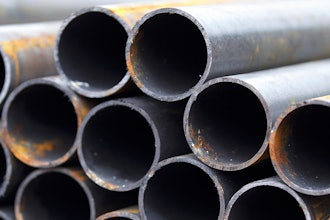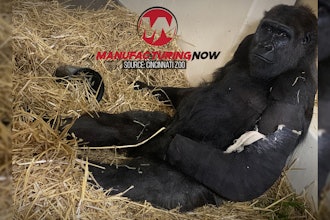DUBLIN, Ireland (AP) -- Irish ham, sausages and bacon began returning to Ireland's store shelves Wednesday after the European Union's food experts ruled that dioxin-tainted pork posed no credible health risk to those who had eaten it.
But a new battle began over who should pay for losses from the pork recall, which were estimated to range from euro100 million ($130 million) to euro500 million ($650 million). Irish farmers accused the government of moving too slowly on the issue.
The findings from the European Food Safety Authority should make it easier for Ireland to persuade its international customers to resume importing pork soon.
Within hours of the experts' announcement, pork products began to reappear on a few Dublin supermarket shelves with new government labeling. "Irish Pork & Bacon APPROVED," the labels read.
Ireland last week ordered an international recall for all its pork products produced since Sept. 1 after scientists in Ireland, Britain and continental Europe found levels of dioxins -- a family of chemicals that can cause cancer -- running at 80 to 200 times the legal limits in pigs on about 10 Irish farms.
Those figures fanned fears that worldwide consumers of Irish pork had been exposed to carcinogens for months. But the European experts based in Parma, Italy, have concluded those fears are groundless, partly because people must consume dioxins for a much longer period to suffer an increased cancer risk.
The agency said even if someone had eaten Irish pork every day since Sept. 1 it would present "no concern" to future health.
The report also offered what it called "a very extreme case" of someone who ate large volumes of Irish pork every day for three months -- and all of that pork somehow was contaminated at the highest level. Even then, it concluded, the person's absorption of dioxins would be risky but it "would not necessarily lead to adverse health effects."
When Irish authorities announced the pork recall, they already had identified the likely source of the contamination: a single 15-employee factory that made animal feed from stale bread, dough and candy.
Inspectors found the factory, Millstream Power Recycling Ltd., had allowed oil used to power an industrial food dryer to get into the food itself. The oil should never have been used near food at all because it contained dioxins.
Even though Millstream's tainted food was used at only about 10 of Ireland's 400 pig farms, the government opted for a total recall because Agriculture Department officials couldn't trace where all the pork from the 10 suspect farms had gone. The task was complicated by the fact that pig meat from many farms is mixed together when making sausages, bacon and processed ham slices.
Negotiations continued Wednesday between the government and Ireland's major pork processors over who is responsible for paying the bill for destroying pigs and pork products that can't be declared dioxin-free. The processors already have laid off 2,000 workers this week and insist they won't resume operations until the government agrees to cover the bulk of the bill for lost profits from returned products.
"We have some tough issues to decide yet," Agriculture Minister Brendan Smith said during a break in the 3-day-old negotiations.
Outside the Agriculture Department headquarters, more than 100 pig farmers protested they were losing euro1 million ($1.3 million) a day and would go bankrupt unless a deal was struck soon.
Tim Cullinan, a member of the Irish Farmers Association's pigs committee, said 60,000 pigs from dioxin-free farms should have gone to the slaughterhouse this week, but processors had closed their doors.
"Pig producers whose herds are clear of any contamination have been unable to move their perfectly healthy animals to processors," Cullinan said. "We are suffering severe losses every day while supermarket shelf space is being lost to imports."
Millstream also provided food to about 45 cattle farms. Ireland announced Tuesday that cattle at three of those farms had tested positive for illegally high levels of dioxins. But Ireland said it would not halt beef production because the dioxin levels were only two to three times above the limit -- and three test-failing farms meant little in a country with 69,000 beef-producing farms.
The dioxin contamination was much lower in the cows because they largely ate grass, while the pigs largely ate the Millstream-produced food.






















